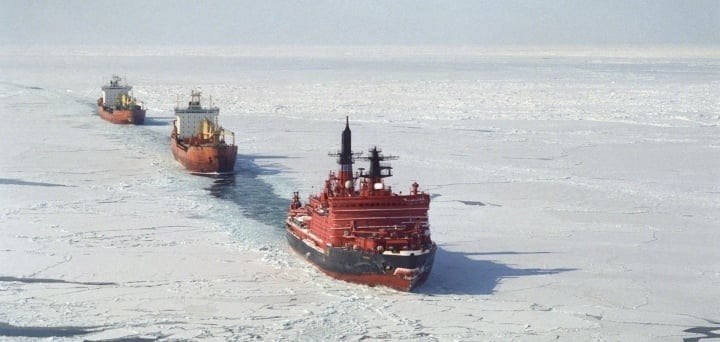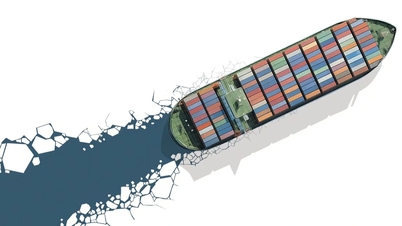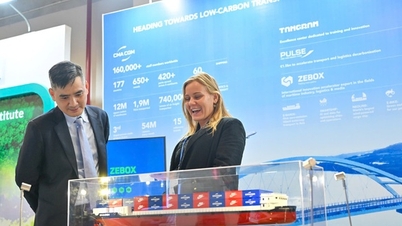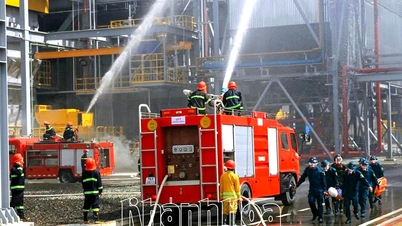 |
| Russia wants to develop the NSR to compete with the Suez Canal. A large fleet of icebreakers is a major advantage for Russia when it puts the NSR into operation. (Photo: TASS) |
The Russian President's representative in the Far East, Yuri Trutnev, said that Russia has asked the Chinese banking system to participate in cargo insurance for this transport route because it believes in the system's capacity.
"NSR will become the world 's new transport artery and can completely compete with the Suez Canal. However, many shipping companies do not use NSR because goods passing through here are not insured," he assessed.
According to statistics from the Northern Sea Route Administration (Glavsevmorput), from January to November 2023, 32 million tons of cargo passed through NSR, mainly liquefied natural gas (LNG), condensate, iron ore, oil, frozen goods, coal...
In 2024, Moscow forecasts that the volume of goods transported through the NSR will be at 72 million tons, and by 2030 it will be nearly 200 million tons.
This year, Russia also launched a year-round maritime navigation service instead of just the summer as before, thanks to which cargo transportation activities will be maintained even in the cold season, which is not the traditional shipping season.
It is forecast that in the first months of 2024, the independent LNG producer Novatek will make the first shipment to the Asia -Pacific region under this year-round navigation system.
Previously, in December 2023, Russian President Putin announced that NSR is increasingly showing greater logistical efficiency than the Suez Canal. Moscow is also building major plans to develop a fleet of nuclear icebreakers. In the near future, the country will inaugurate the Ledokol icebreaker capable of breaking through 6-7 meter high icebergs.
The NSR is the shortest sea route connecting Europe and Asia. For example, the sea route from Murmansk to Japan via the NSR is 9,280 km, while via the Suez Canal is 20,660 km.
However, the NSR has a drawback in that it passes through ice-covered oceans and requires nuclear-powered icebreakers to clear the way for cargo ships. Nevertheless, the Arctic could still become a viable option for commercial shipping.
Source


![[Photo] Students of Binh Minh Primary School enjoy the full moon festival, receiving the joys of childhood](https://vphoto.vietnam.vn/thumb/1200x675/vietnam/resource/IMAGE/2025/10/3/8cf8abef22fe4471be400a818912cb85)

![[Photo] Prime Minister Pham Minh Chinh chairs meeting to deploy overcoming consequences of storm No. 10](https://vphoto.vietnam.vn/thumb/1200x675/vietnam/resource/IMAGE/2025/10/3/544f420dcc844463898fcbef46247d16)









































































































Comment (0)